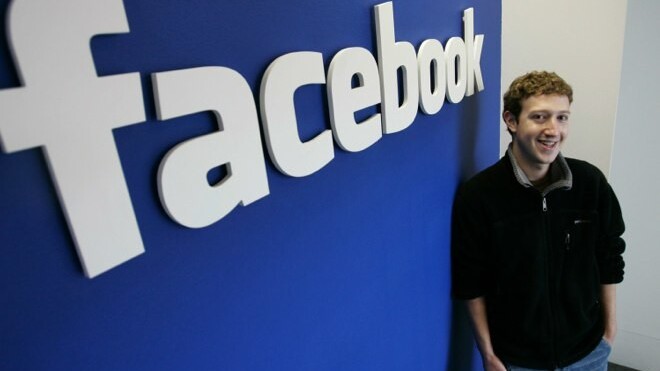
Facebook is an Internet colossus. It’s as simple as that. As Google’s Eric Schmidt recently acknowledged, it is one of the Web’s most powerful and influential force, that’s despite being less than 8 years old. Few companies can boast a total membership number in excess of 800 million, of which more than half are active on a daily basis.
Facebook has been going strongly year on year for some time now, but 2011 was its most significant year yet, and it was one in which the firm took steps to transition itself from just being a popular social network, to a Web-based ‘operating system’.
This review looks at the key developments and news from Facebook during 2011, as it gets set for a red-hot 2012.
A new look through the introduction of Timeline
Although it was not announced until late in year, at the F8 conference in September, the Timeline feature has been the biggest single introduction that Facebook has ever made. The new design changes the traditional layout that we all know, love and bitch about in fairly equal measures.
With its emphasis on images and layout, Timeline is a play to reinvigorate Facebook users who were beginning to find the platform stale after years of using it. It is also a significant opportunity to build for mobile devices, which the social network has been keenly focusing on, developing its HTML 5 website and platforms for this purpose.
The feature began with a roll out that was for developers only, but a large number of users — including our own Drew Olanoff — snuck in to get a taste of the revamped design early. The rest of the world had to wait a long while to get the revamp; a trial introduction began in New Zealand on 7 December before the feature was fully released to all Facebook users a little over a week later.
There is a quite a story behind the origins of the feature, as The Next Web‘s Courtney Boyd Myers explains, the concept and design is inspired by New York based data aggregator Nicholas Feltron. Facebook made hiring him a priority after being blown away when they came across his detailed work.
Facebook won’t stop its new focus now, and its longer-term plans for Timeline were shown when it snapped up Gowalla, a social check-in service that was once on a similar level to Foursquare. Though Gowalla has seen better times, Facebook saw enough potential in the firm and grabbed it purely for development, as it looks to make the Timeline a core part of its offering.
Platform changes, tweaks and additions
Facebook is forever tweaking its platform to encourage users to be more active and get more from the service. We couldn’t possibly detail all of its changes, but here is a recap of some of the most significant of the bunch.
For brands
Facebook began the year introducing new pages for brands, which we covered extensively at the time, and indeed its focus on business saw pages continually tweaked and enhanced to encourage companies to use them. Facebook relies on businesses, not only to generate revenue, but to ensure that there is compelling content for its users.
Comment platform
Facebook has long extended its reach out onto the ‘open’ web — through Facebook Connect and other features –and it added to that collection this year by introducing a comment platform. We haven’t introduced it here, but a number of other sites — including the Huffington Post — have, and the platform has helped Facebook spread itself further, and scoop up new content and interactions.
Subscriber buttons
Facebook also brought in a Twitter-like subscriber button in a bid to offer more options for breaking news, and presumably also celebrities, to sure the service as they do Twitter. Which is later followed-up by introducing a subscribe button for websites to allow them to follow suit and offer users updates through the social network.
Sponsored stories
One of the more controversial additions, which is yet to be brought into the site is sponsored stories, which will see advertising content mixed in with updates from friends within a user’s timeline. The addition has caused outrage amongst many users who feel that the timeline is a place that should be free of advertising. We can speculate all we like on this topic, but the full impact — and any backlash — won’t be clear until it is unveiled in 2012.
More to come
The new year will also see a greater emphasis on mobile and gaming, two areas that Facebook had in mind when it tweaked its mobile timelines and applications settings this month. While we can expect the trial introduction of private messages between business pages and fans to be expanded next year too.
More details of a Facebook Phone: ‘Buffy’
Google added mobile to its strategic fronts when it introduced the Open Handset Alliance, which subsequently bore its Android operating system. It purchased Motorola this year, and there has been much speculation linking Facebook with a move to mobile.
On a paper it seems logical. Facebook is one of the most recognised and used Internet services, both on computers and mobile devices themselves. That brand recognition could give it a lot of sway to attract users and build a new stream of revenue.
Rumours of a Facebook phone have been around for what seems like an eternity, and 2011 saw more speculations and details emerge. A partnership with Taiwanese handset developer HTC was put forward, with sources suggesting that the two would collaborate to build a device. Facebook initially denied the claims but, in November, a joint mobile project — codenamed ‘Buffy’ — was leaked providing substances to the ever louder whispers.
Facebook has been involved with HTC before, with the manufacturer’s Salsa device — pictured above — given a set of dedicated Facebook features, including a Facebook button, but the new project will be different.
While Buffy is technically not a Facebook phone, as it will be Android-based and HTC built, its operating system will be heavily tweaked to give Facebook personalisation and, what it hopes will be, a unique offering. From the specs and details, which it has to be said are limited at this stage, it doesn’t sound like a high-end device, and we suspect that the phone — which is likely at least 6 months away from completion — will be aimed at teenagers and a younger audience.
Given Facebook’s broad appeal in today’s world, where it is no longer that website used by teenagers, we can’t help but think that the company could do a lot better if it unveiled something broader than this niche offering.
It remains to be seen exactly how project Buffy will turn out, but suffice to say, for a concept that has stacks of potential, the HTC rumours were somewhat underwhelming. With the phone more than likely to drop in 2012, we may not have long to wait until all is revealed.
Privacy issues
What Facebook round-up could possibly be complete without mention of privacy, and the subject proved to be as heated as ever this year. Most notably, Facebook settled a series of charges that the FTC subjected to it in the US as “part of the agency’s ongoing effort to make sure companies live up to the privacy promises they make to American consumers”.
The FTC levied eight complaints against the social network that, following the settlement, will mean that Facebook will undergone regular evaluations — every two years for the next twenty years — to ensure that it is hitting the standard that the FTC requires of it.
Jon Leibowitz, Chairman of the FTC claimed that “Facebook is obligated to keep the promises about privacy that it makes to its hundreds of millions of users”, and you can bet your bottom dollar that the FTC will not let up on this issue.
Mark Zuckerberg himself put out a very public apology for “a bunch of mistakes” that the social network has made over the privacy of it users. He admitted that he understands why people are sceptical of its privacy credentials, whilst pledging to be more transparent going forward:
Facebook has always been committed to being transparent about the information you have stored with us – and we have led the internet in building tools to give people the ability to see and control what they share.
But we can also always do better. I’m committed to making Facebook the leader in transparency and control around privacy.
That wasn’t the only high profile scrap that Facebook found itself in over user privacy, as it faced outcry when a US lawsuit suggested that it was monitoring user activities. John Graham, a lawyer from Kansas, claimed that Facebook uses a tracking cookie to record user’s web browsing history, even after they have logged out of the service.
Facebook subsequently admitted tracking the data and a series of options for opting out of the tracking mushroomed online, but its reputation was further dented by the allegations.
Just last week, Ireland’s Data Protection Commissioner announced the result of a three month long audit addressing whether any of Facebook’s feature were in breach of Irish law. Though the report concluded that the social network was not building ‘shadow profiles’ of non-users, as had been suggested, some areas of concern were highlighted.
Irish authorities drew up a number of recommendations that Facebook must act on by July 2012, some of which relate to tagging friends in photos. Facebook has agreed to the proposals and intends to make many of the changes on a worldwide basis, except where they apply to legislation specific to Ireland.
$100 billion IPO in the offing
Facebook’s much-rumoured IPO has been one of the biggest stories in the world of tech, given the company position as an industry giant and pioneer of today’s world.
The year started with Facebook raising $500 million in investment from Goldman Sachs, a deal which gave it a, frankly insane, valuation of $50 billion, and from then on the possibility of a Facebook listing has been a constant subjects for the tech press worldwide.
While nothing has been confirmed, as is the case with companies going into or preparing for an IPO, the industry rumour mill has largely settled on a $100 billion valuation (and we thought $50 billion was insane) which would see the company’s stock sale as large as $10 billion.
For a company that was founded in 2004, such a valuation is quite incredible and a number of financial leaks have suggested that the social network has the figures to back it up. Reports in September suggested Zuckerberg’s firm saw revenues in excess of $1.6 billion during the first half of the year. Unconfirmed reports this month told a similar story, forecasting that the social network could gross more than $1 billion in net profit during the year, which would be quite an achievement.
Though these figures are up for dispute, as none were officially announced, one thing that is for sure is that the IPO, when it happens, will have a huge impact upon Silicon Valley and the global technology industry at large. The deal is likely to create thousands of newly minted millionaires who, having worked at Facebook since its early days, will be looking to reinvest their funds into new projects or opportunities.
Feeling the heat from Google+
While it may sound strange to pick out a rival in this round-up, the launch of Google’s most successful social networking product to date, Google+, has had a significant impact on Facebook this year.
Google has now become Facebook’s number one challenger in the social networking space, despite the fact that there are big differences between the two. Google+ reached 10 million users in just 16 days, which smashes the growth times of Facebook and Twitter, but arguably Google owes a lot to its rivals for breaking ground and making social networking mainstream. Without their efforts pioneering the genre, Google+ may have grown far slower, but equally, its rival have been influenced by it, and a number of Facebook features seem to have been introduced in response to Google+’s emergence.
The new Status Bar on Facebook, displaying photos with greater emphasis, and changes made to the way updates are displayed in News Feeds are all reminiscent of Google+, as we pointed out in September.
Indeed, right after Google finally introduced brand pages to its service, Facebook stepped in to roll out improved page admin insight, as if to remind companies that it is still the boss in the world of social media.
It isn’t just the platforms that have lit up through competition, there has been an ongoing war of words between the two great rivals. Things began when Mark Zuckerberg delivered a near-infamous put down when he claimed that Google+ was Google “building its own little Facebook”. Google’s Bradley Horowitz, who is leads the development of Google+, rejected comparisons between the two social networks, stressing their differences, but he did fire back at Zuckerberg by saying that the company was “delighted to be underestimated” by its competitor.
In an interview with the BBC in December, Zuckerberg was more positive with his thoughts on Google, saying:
Yeah Google’s a great company and I think we want to look at and learn from everything that they do. But at the same time, people have shared a lot on Facebook and have already told a lot of their life story on Facebook. And we think that we have by far better tools for doing that.
Zuckerberg will almost certainly be paying great attention to Google+ because, irrespective of how it is marketed, it is a director competitor to Facebook. Google is ploughing resources into it, with positive results; user figures growing, time on site increasingly, more features are being added on a weekly basis. Furthermore, the company has deep pockets of cash and plenty of places to direct traffic to it, so it is fair to say that this is only the start of things.
Google+ undoubtedly has its critics but it cannot be written off for these reasons, and it will continue to influence and rival Facebook like no-one service going forward.
And so to 2012…
Facebook is sure to dominate tech headlines in 2012, even if it does nothing next year apart from IPO, such is the magnitude of its potential listing. But Facebook fans can rest assured that the company will continue to churn out new developments and features now that it is being rivalled more closely.
 Sponsored stories will launch soon and mobile remains a key area where he can expect to see more changes being made. Facebook is keen to keep existing users engaged and also attract new members from developing markets.
Sponsored stories will launch soon and mobile remains a key area where he can expect to see more changes being made. Facebook is keen to keep existing users engaged and also attract new members from developing markets.
One thing that we can with certainty is that Facebook will notch its one billionth user in 2012. That concept is quite insane, who’d have thought such a thing would be possible, even as recently as five years ago?
We’re quite sure that this is just the tip of the iceberg and we can expect even more than that from Mr Zuckerberg and company in the new year and beyond.
You can find all of our 2011 Tech Rewind series here.
Get the TNW newsletter
Get the most important tech news in your inbox each week.








